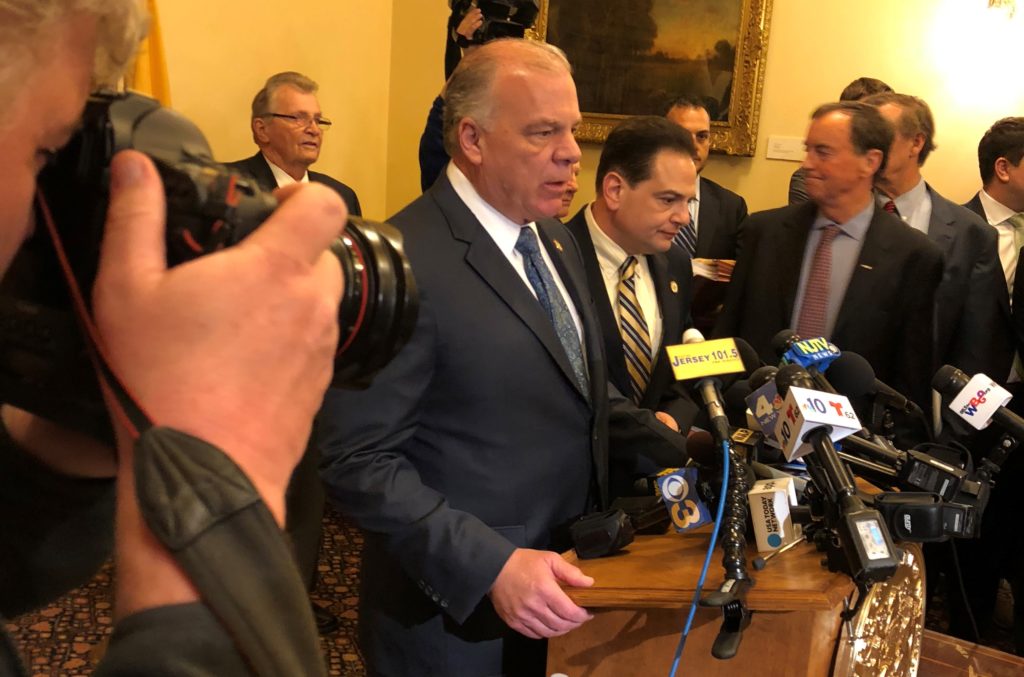NJLCV’s 2019 Legislative Scorecard Highlights the Most Environmentally Productive Legislature in Over a Decade

2019 Legislative Scorecard Highlights the Most
Environmentally Productive Legislature in Over a Decade
TRENTON, NJ – Today, the New Jersey League of Conservation Voters unveiled their 2019 Legislative Scorecard, which showcases this current legislative session to be the most environmentally productive legislature in over a decade.
“The importance of the Legislative Scorecard cannot be overstated,” said Ed Potosnak, Executive Director of the New Jersey League of Conservation Voters. “With this comprehensive scorecard, and the amount that has been accomplished by this legislature, one thing becomes exceptionally true – this is the most environmentally productive legislature in over a decade.”
During the last two years, New Jersey LCV’s top three major legislative priorities were accomplished. These include: the landmark and nationally leading Clean Renewable Energy Bill; Authorizing language for the Clean Stormwater and Flood Reduction Act allowing municipalities to use a critical tool, a stormwater utility, to manage their stormwater infrastructure; and the culmination of a massive coalition effort, the Keep It Green Coalition, to codify permanent funding for open space, preserved farmland, and historic preservation – at no cost to tax payers.
New Jersey LCV also added an additional priority — a critical update to the Global Warming Response Act. This update now provides the state Department of Environmental Protection with a formal mandate that requires the state to regulate economy-wide greenhouse gas emissions and short-lived climate pollutants and was signed into law by Governor Murphy.
“The amount of success that we’ve had is tremendous — and better yet, each priority has had bi-partisan support,” said Julia Somers, Board Chair of the New Jersey League of Conservation Voters. “New Jersey LCV wants to thank our environmental champions in the legislature, a committed Governor Murphy and Administration, and our tireless and energetic partners and volunteers who have work to make New Jersey the most innovative state addressing the climate crisis.”
New Jersey LCV’s comprehensive scorecard serves as a key tool that highlights the exceptional environmental work that many of our legislators are doing. It also serves as an accountability mechanism to those who don’t consider preserving and protecting our natural resources as a priority.
Notable scores from New Jersey State Legislators include:
Overall Senate
Average Democrat: 89%
Average Republican: 51%
Overall Assembly
Average Democrat: 86%
Average Republican: 42%
Senate Leadership
- President: Stephen Sweeney 95%
- Majority Leader: Loretta Weinberg 85%
- Democratic Conference Chair: Vin Gopal 90%
- Minority Leader: Thomas Kean 69%
- Republican Conference Leader: Chris Brown 85%
Assembly Leadership
- Speaker: Craig Coughlin: 93%
- Majority Leader: Louis Greenwald: 93%
- Democratic Conference: Shavonda Sumter 86%
- Democratic Whip: Raj Mukherji 86%
- Minority Leader: Jon Bramnick 50%
- Republican Conference: Anthony Bucco 43%
Committee Chairs
- Senate Budget and Appropriations: Paul Sarlo 70%
- Senate Environment and Energy: Bob Smith 95%
- Senate Health, Human Services, and Senior Citizens: Joseph Vitale 95%
- Senate Transportation: Patrick Diegnan 95%
- Assembly Appropriations: John Burzichelli 93%
- Assembly Agriculture and Natural Resources: Eric Houghtaling 86%
- Assembly Environment and Solid Waste: Nancy Pinkin 93%
- Assembly Transportation and Independent Authority: Daniel Benson 93%
The digital version of the Scorecard can be found here.
New Jersey League of Conservation Voters is a non-partisan organization whose mission is to elect environmental champions, hold public officials accountable, and support laws which protect our environment and improve the quality of people’s lives.









